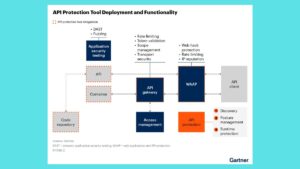What HR Tech Companies Expect from the Union Budget 2024

As the Union Budget 2024 approaches, HR tech companies are keenly anticipating how it will address key issues impacting the human resources technology sector. The budget presents an opportunity for the government to introduce measures that can drive innovation, support growth, and enhance the overall business environment for HR technology companies. This blog explores what HR tech companies are hoping for in the upcoming Union Budget and the potential impact of these expectations on the industry.
Key Expectations from the Union Budget 2024
- Incentives for Technology Innovation and R&D:
HR tech companies are looking for increased incentives for research and development (R&D) activities. They hope the budget will introduce tax benefits, grants, or subsidies to encourage innovation in HR technology. This support can foster the development of cutting-edge solutions, such as AI-driven platforms, advanced analytics tools, and automation technologies. - Support for Digital Transformation Initiatives:
As organizations continue to embrace digital transformation, HR tech companies are expecting the budget to include provisions that support digital adoption. This could involve funding for digital infrastructure, subsidies for implementing HR tech solutions, and programs that encourage small and medium-sized enterprises (SMEs) to invest in technology. - Enhanced Data Security and Privacy Regulations:
With increasing concerns about data security and privacy, HR tech companies are hoping for clear and robust regulations in the budget. They expect guidelines that will help them navigate data protection laws, ensuring that their solutions comply with legal requirements and safeguard sensitive employee information. - Incentives for Skill Development and Training:
HR tech companies recognize the importance of a skilled workforce in driving technological advancements. They are looking for budgetary support for skill development and training programs. Funding for educational initiatives and vocational training can help address the talent gap and ensure that professionals are equipped to work with advanced HR technologies. - Support for Startups and SMEs:
Many HR tech companies are startups or small and medium-sized enterprises. They are hoping for measures that support the growth of these companies, such as tax breaks, reduced compliance costs, and easier access to funding. Such support can help these businesses scale, innovate, and compete effectively in the market. - Tax Benefits for HR Tech Investments:
HR tech companies are seeking tax incentives for investments in technology and infrastructure. They expect the budget to include provisions that allow for depreciation benefits, investment allowances, or credits for spending on HR technology solutions. This can help reduce the financial burden of adopting new technologies. - Encouragement of Public-Private Partnerships:
Collaboration between the public and private sectors can drive significant advancements in HR technology. HR tech companies are looking for budgetary measures that encourage public-private partnerships, such as joint research projects, pilot programs, and collaborative initiatives that leverage government resources and expertise. - Focus on Inclusivity and Accessibility:
HR tech companies are advocating for measures that promote inclusivity and accessibility in technology. They expect the budget to support initiatives that enhance the accessibility of HR tech solutions for diverse and underserved populations, including provisions for accessibility standards and support for inclusive technology development.
Potential Impact of Budgetary Measures on HR Tech Companies
1. Accelerated Innovation:
Support for R&D and digital transformation can accelerate innovation in HR technology, leading to the development of advanced solutions that address emerging HR challenges. This can drive competitive advantage and improve the effectiveness of HR practices.
2. Enhanced Data Protection:
Clear regulations on data security and privacy can help HR tech companies ensure compliance and build trust with clients. This will reduce legal risks and enhance the reputation of HR technology providers.
3. Growth Opportunities for Startups:
Incentives for startups and SMEs can provide growth opportunities for emerging HR tech companies. Access to funding and reduced compliance costs can facilitate their expansion and market presence.
4. Improved Workforce Skills:
Investment in skill development and training will help address the talent gap in the HR tech industry. A skilled workforce can drive the successful implementation and utilization of advanced HR technologies.
5. Stronger Public-Private Collaborations:
Encouragement of public-private partnerships can lead to collaborative projects that leverage government resources and expertise. This can drive advancements in HR technology and address key challenges in the sector.
Conclusion
As the Union Budget 2024 approaches, HR tech companies have high expectations for measures that support innovation, digital transformation, data security, and growth. By addressing these expectations, the government can foster a thriving HR technology sector, drive advancements, and create a favorable environment for businesses to succeed. The outcome of the budget will play a crucial role in shaping the future of HR technology and its impact on the workforce.






